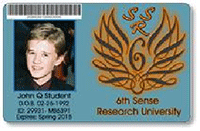 One of the more common quotes attributed to Thomas Edison is, "When you have exhausted all possibilities, remember this: you haven't." This sentiment has been kind of the driving force behind the recent inclusion of iEdison into the fold of eRA solutions.
One of the more common quotes attributed to Thomas Edison is, "When you have exhausted all possibilities, remember this: you haven't." This sentiment has been kind of the driving force behind the recent inclusion of iEdison into the fold of eRA solutions.
If you are not familiar with iEdison, it is the solution that allows government grantees and contractors to report inventions, patents, and utilization data that have resulted from federally funded research projects. Grantees and contractors submit these reports via iEdison to the government agency that issued the funding award.
Back in January, iEdison was officially incorporated into eRA's suite of services. As part of that process, eRA has updated, redesigned, reinvented, and reorganized the information and resources for iEdison users. From the main informational page, you find information that is centralized in a graphical concept that is less text heavy and easier to navigate.
As one long time iEdison user pointed out, he was impressed with "how maneuverable and intuitive it was and I am pleased to say I was very impressed." He continued his evaluation with, "it is a good balance of providing enough information to make it effective without having too much information."
Undergraduate & Graduate Accounts in Commons
 Is everyone getting younger? Or am I just getting older? Having passed the half century mark, I have become keenly aware that… I see young people. And as eRA Commons has gotten older, it can be said that it, too, is starting to see young people.
Is everyone getting younger? Or am I just getting older? Having passed the half century mark, I have become keenly aware that… I see young people. And as eRA Commons has gotten older, it can be said that it, too, is starting to see young people.
Since August 15, 2013, the functionality to create accounts for students has been available. However, as part of the NIH effort to improve data on the biomedical workforce (BMW), undergraduate and graduate students who participate in NIH-supported projects for at least one person-month of full-time work will eventually be required to have an eRA Commons account for reporting purposes.
Back in November of 2013, both the PHS 2590 Non-Competing Continuation Progress Report and Research Performance Progress Report (RPPR) started checking to see if graduate and undergraduate students' Commons User IDs were included in the report. They aren't quite mandatory at this point. You will get a warning from the electronically submitted RPPR for students listed on the report, but who do not have a Commons name.
Starting in October 2014, Commons User IDs will be required for these students. NIH will not accept RPPRs or PHS 2590s that do not have this information.
For more information on Commons User IDs for students, read the August 2, 2013, Guide Notice and the Extramural Nexus article. As Dr. Rockey points out in her Nexus article, it will be critical for all students to create their personal profile in Commons as this information will eventually "reduce burden in the long run by pre-populating some reporting fields and forms." For more information on the Personal Profile, you can watch the Personal Profile Overview video.
I hope I get over this "seeing" thing soon, because every time I see the couple that lives a few doors down from me, I find it hard to believe they're married… looks more like they should be getting ready for prom… junior prom (sigh).
 Related to the article above, please remind undergraduate and graduate students that eRA Commons User IDs are for the life of their scientific career. So while "IamDaBomb," "WillDoubleHelix4U," or "2MoreResearch" seem clever and witty now, in 5, 10, or 30 years it will create a kind of "face-palm" moment.
Related to the article above, please remind undergraduate and graduate students that eRA Commons User IDs are for the life of their scientific career. So while "IamDaBomb," "WillDoubleHelix4U," or "2MoreResearch" seem clever and witty now, in 5, 10, or 30 years it will create a kind of "face-palm" moment.
A Commons User ID should not be specific to their current institution, as in don't use the student's institution email address or have the institution initials as part of the ID. Principal Investigators (PI) may be affiliated with multiple institutions over their career and having a user ID related to an institution they are no longer associated with can be confusing. Undergraduate and graduate students should work together with their Signing Official or Account Administrator (AA) to create a Commons User ID that will be professional, appropriate and can be saved for future reference.
Signing off, from "1B2B3" (and if you get that reference… well, you're awesome!)
Joe Schumaker
eRA Communications
Division of Communications and Outreach
NIH Office of Extramural Research




 eRA Intranet
eRA Intranet